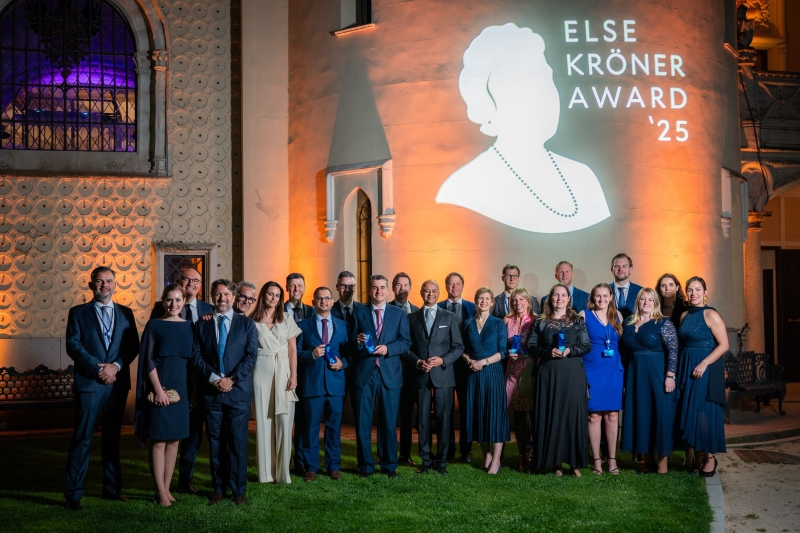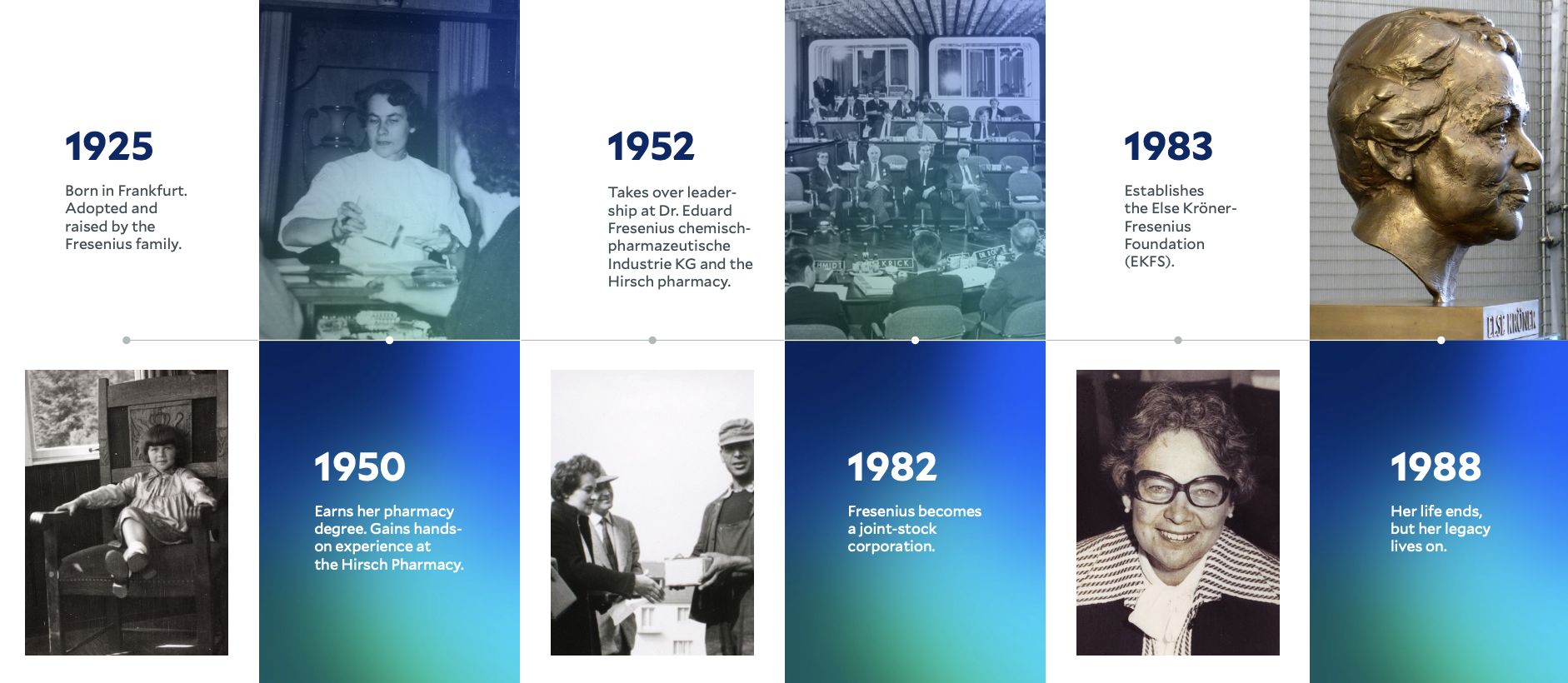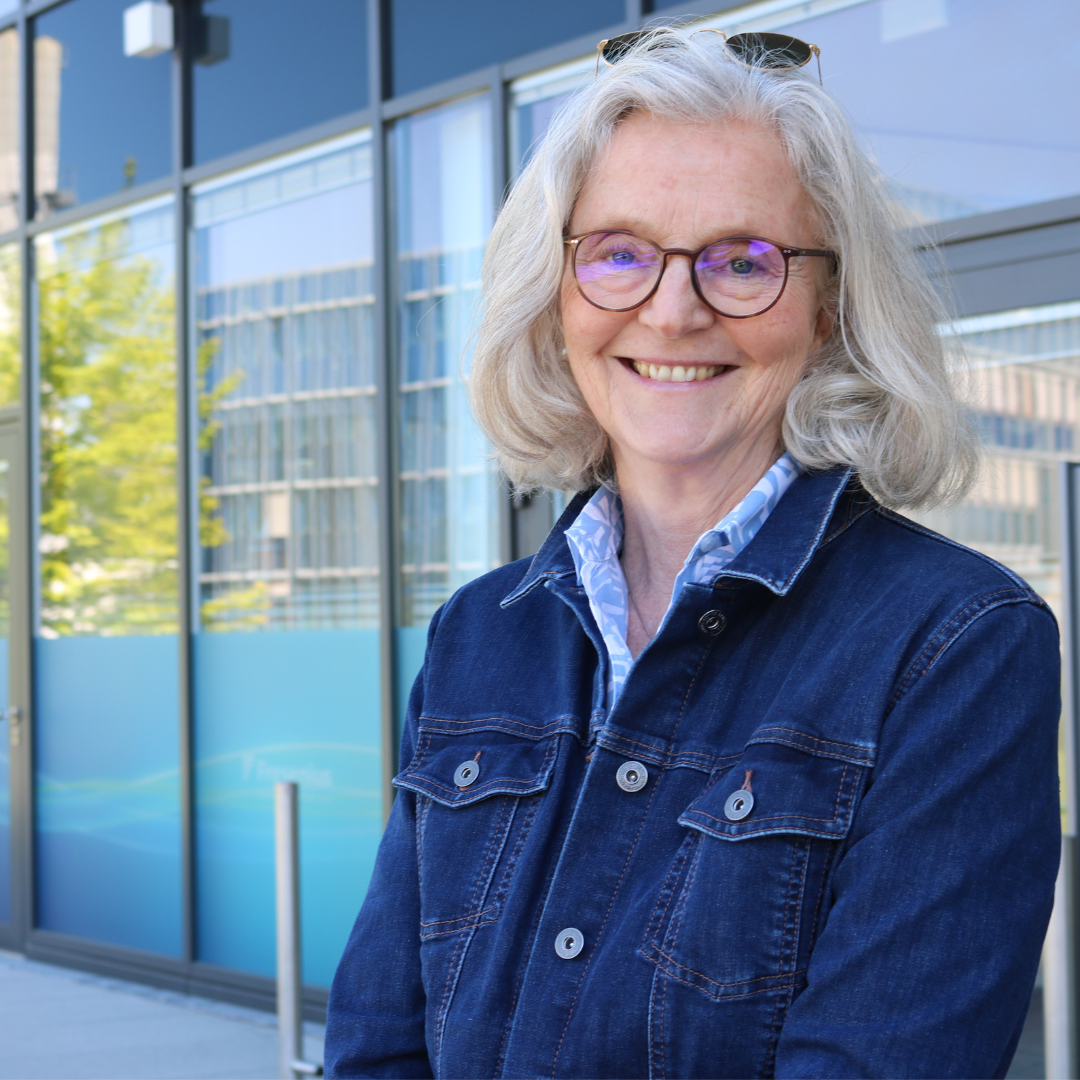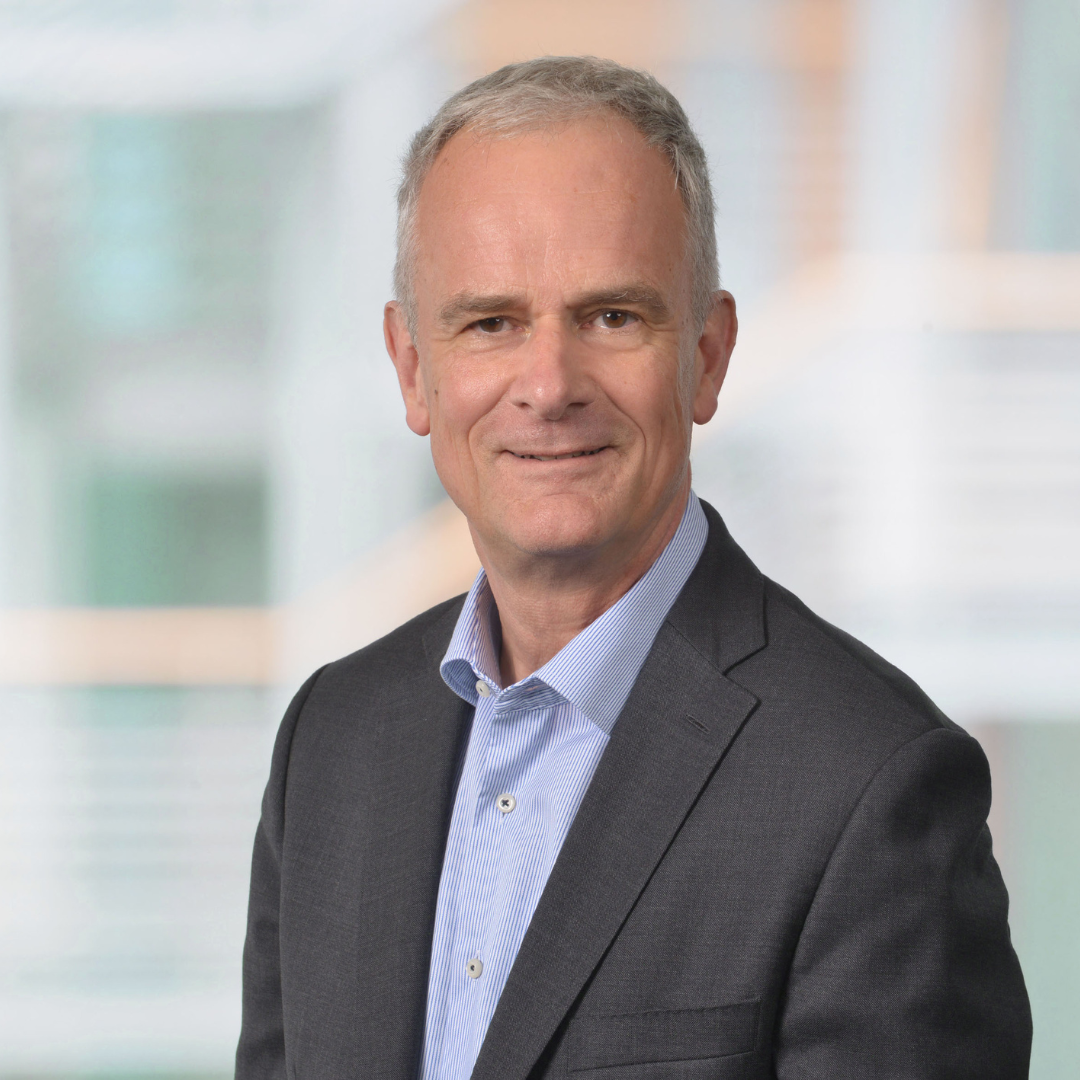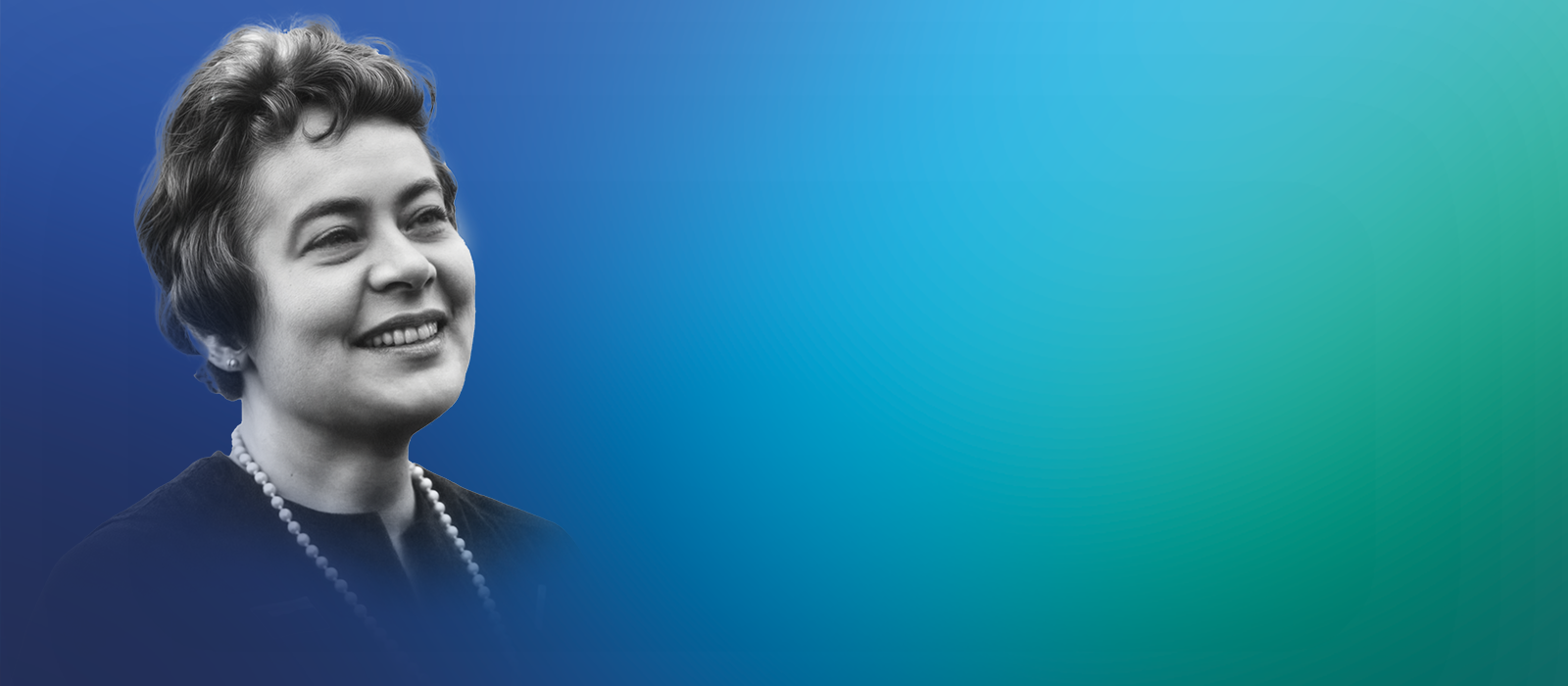
“Who, if not us?”
But what experiences influenced Else Kröner and what private and professional decisions made her who she was? Her biography provides some insights:
When the company founder Dr. Eduard Fresenius passes away in 1946, his company “Dr. Eduard Fresenius chemisch-pharmazeutische Industrie KG” is scarred by the war. It brings in just enough to cover the outstanding debts and there are only a few staff left. The Hirsch Pharmacy out of which the company is born is destroyed in early 1944 during a bombing raid. Else Fernau, the foster daughter and heiress of Dr. Eduard Fresenius, writes of this in a letter to a friend: “Nothing more than a forlorn pile of rubble remains. I struggle to even make out what it used to be.”
Else Fernau is just 20 years old when Dr. Eduard Fresenius passes away. She knows how challenging rebuilding the company will be. She manages it, though – and even far more: She creates a successful, globally active healthcare enterprise.
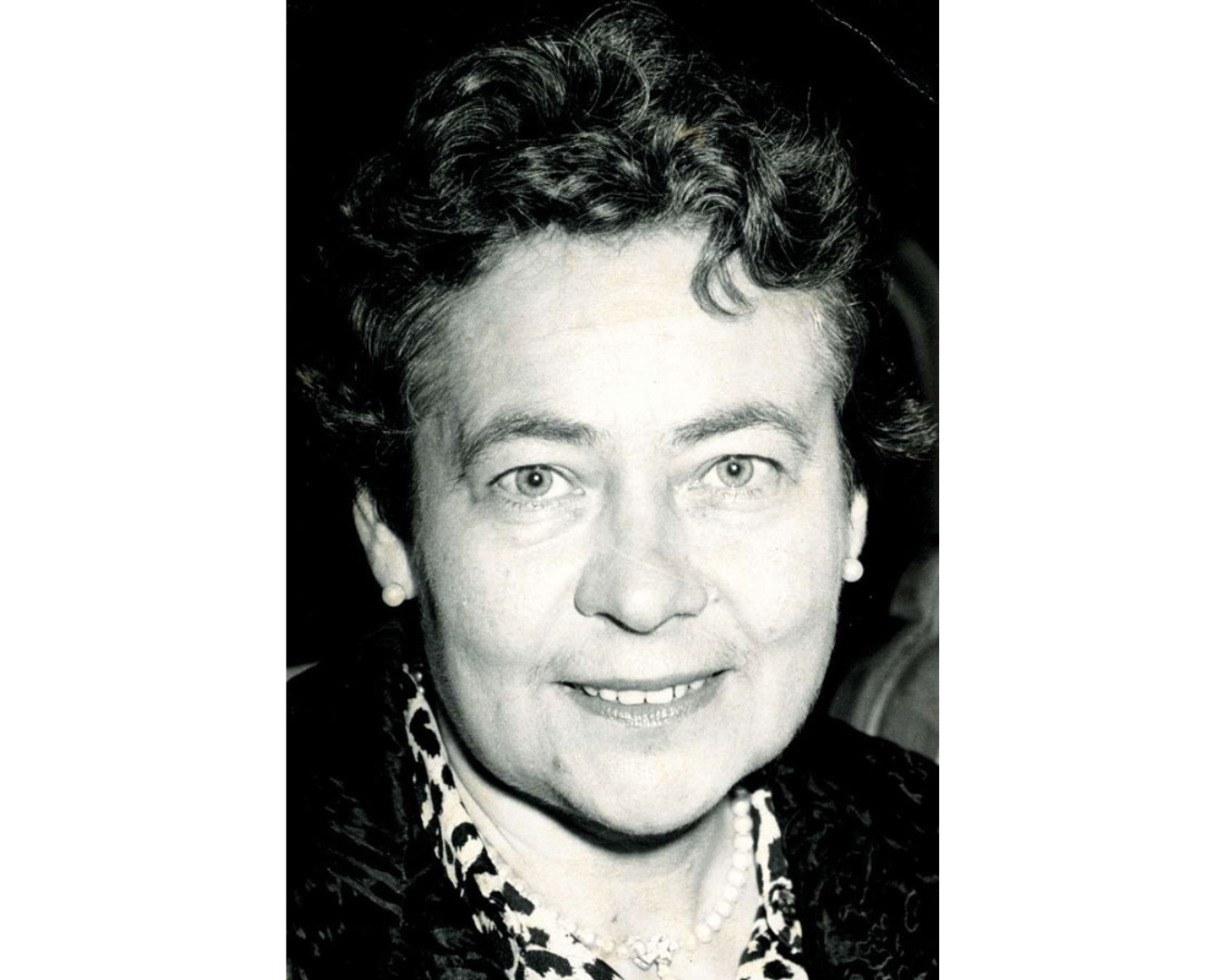
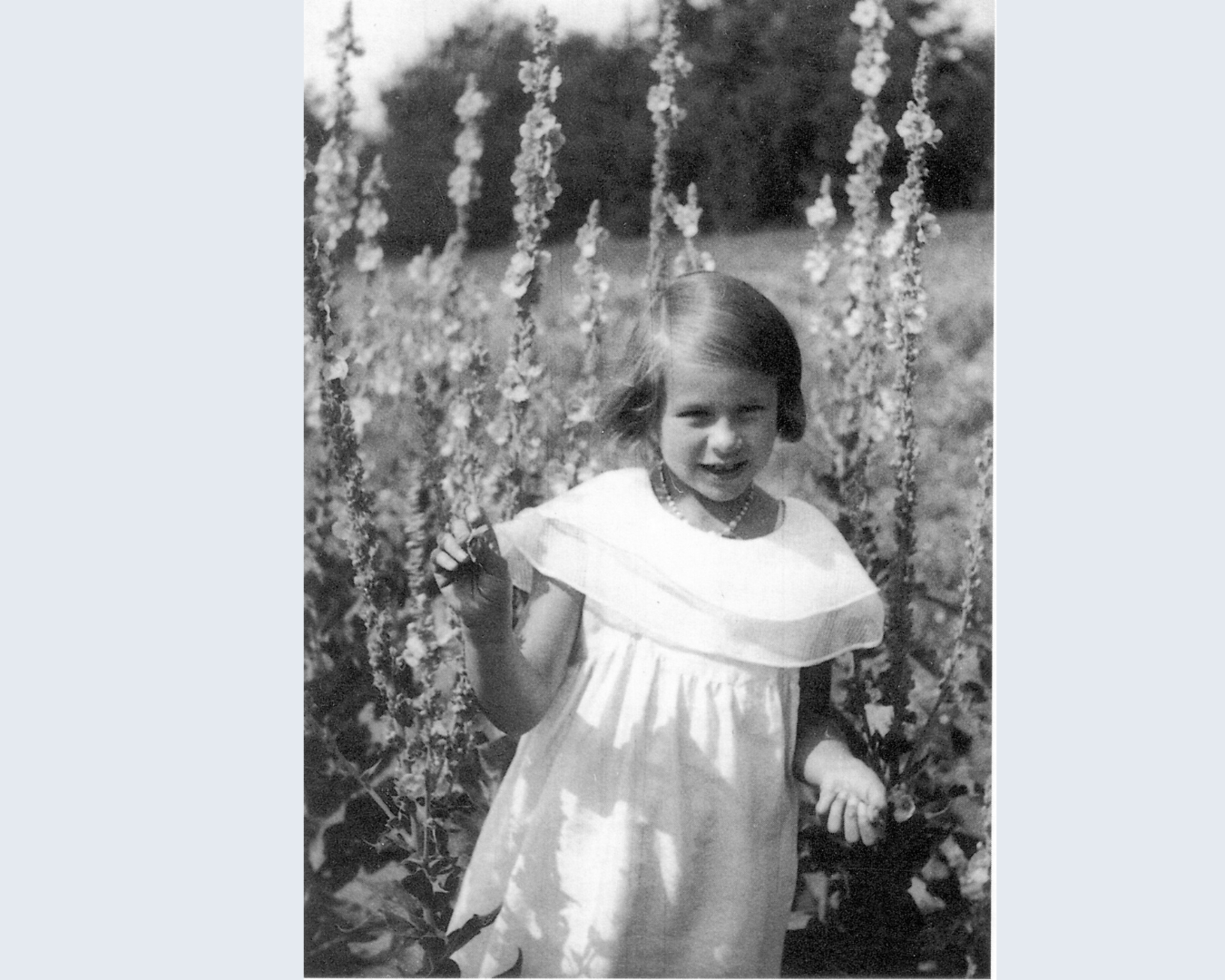
Childhood experiences motivate the advancement of medicine and social responsibility
Else Fernau is born in Frankfurt in 1925. Medicine plays a role in her life earlier than it should: Her father passes away when she is just four years old during an appendectomy, which is actually already a routine procedure back in those days. The cause is undiagnosed diabetes. Both professionally and privately, Else Fernau (later Else Kröner) remains committed to advancing medicine and ensuring broad access to therapies. Together with her husband, Dr. Hans Kröner, she supports medical and humanitarian projects in Germany and worldwide. In 1972, she establishes a foundation for the advancement of medical research and education, which among others publishes specialist magazines.
Else Fernau’s mother is already the housekeeper in the Fresenius household before Else’s father passes away. The two families subsequently grow even closer.
An insurmountable challenge: From pharmacist to entrepreneur at 26
Else Fernau officially takes over management of the company in Bad Homburg in 1952. She had previously completed an internship at the Hirsch Pharmacy – a prerequisite for her pharmacy degree. Consolidating the company without laying off employees proves particularly challenging. Every day, she works more than twelve hours, helping out wherever she is most needed. Her employees appreciate her and feel reassured: “Els’chen is here, we’re up and running.” And after a while, the company really does get “running” again. During her first years as an entrepreneur, Else Fernau systematically gains business skills to complement her pharmaceutical expertise.
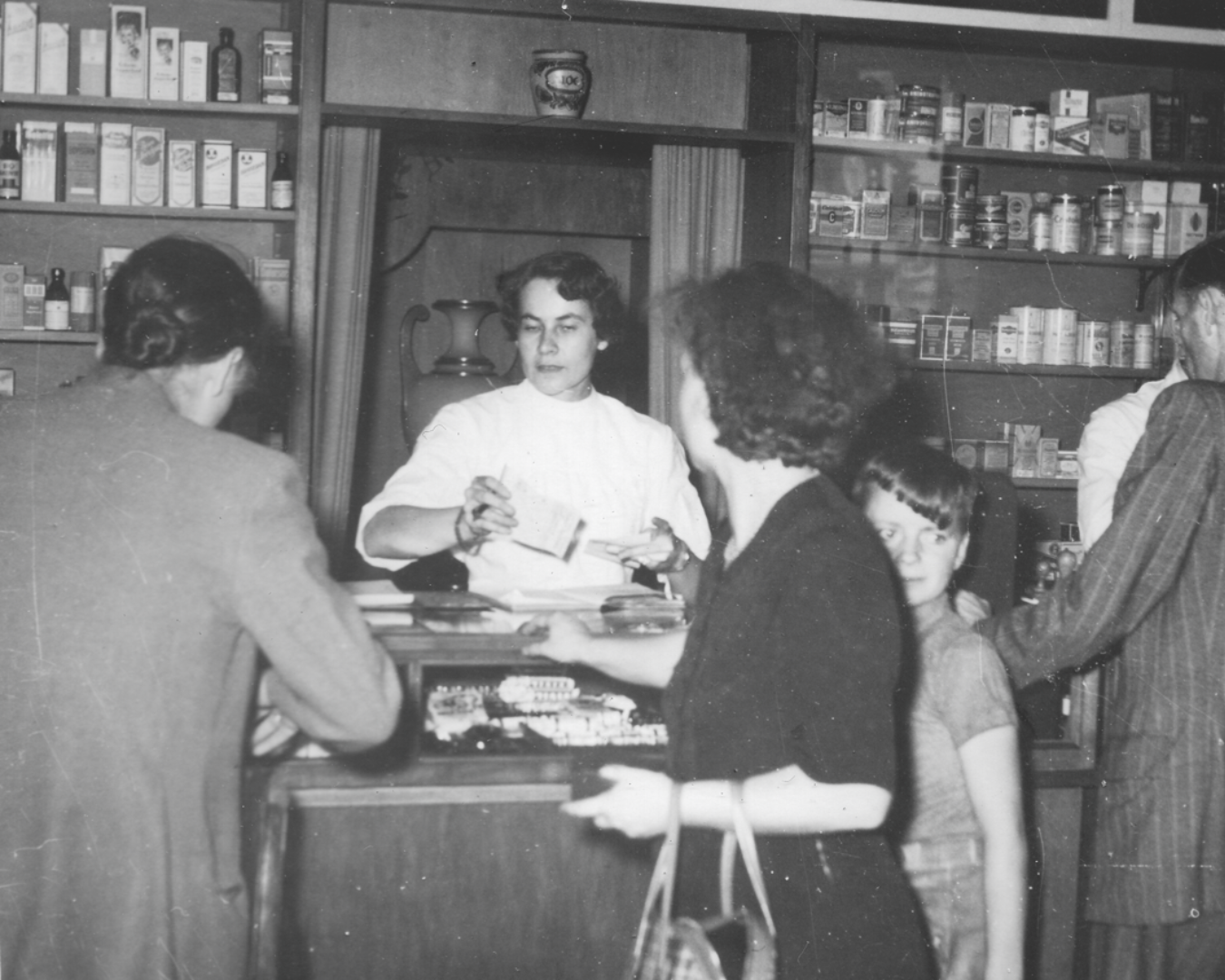
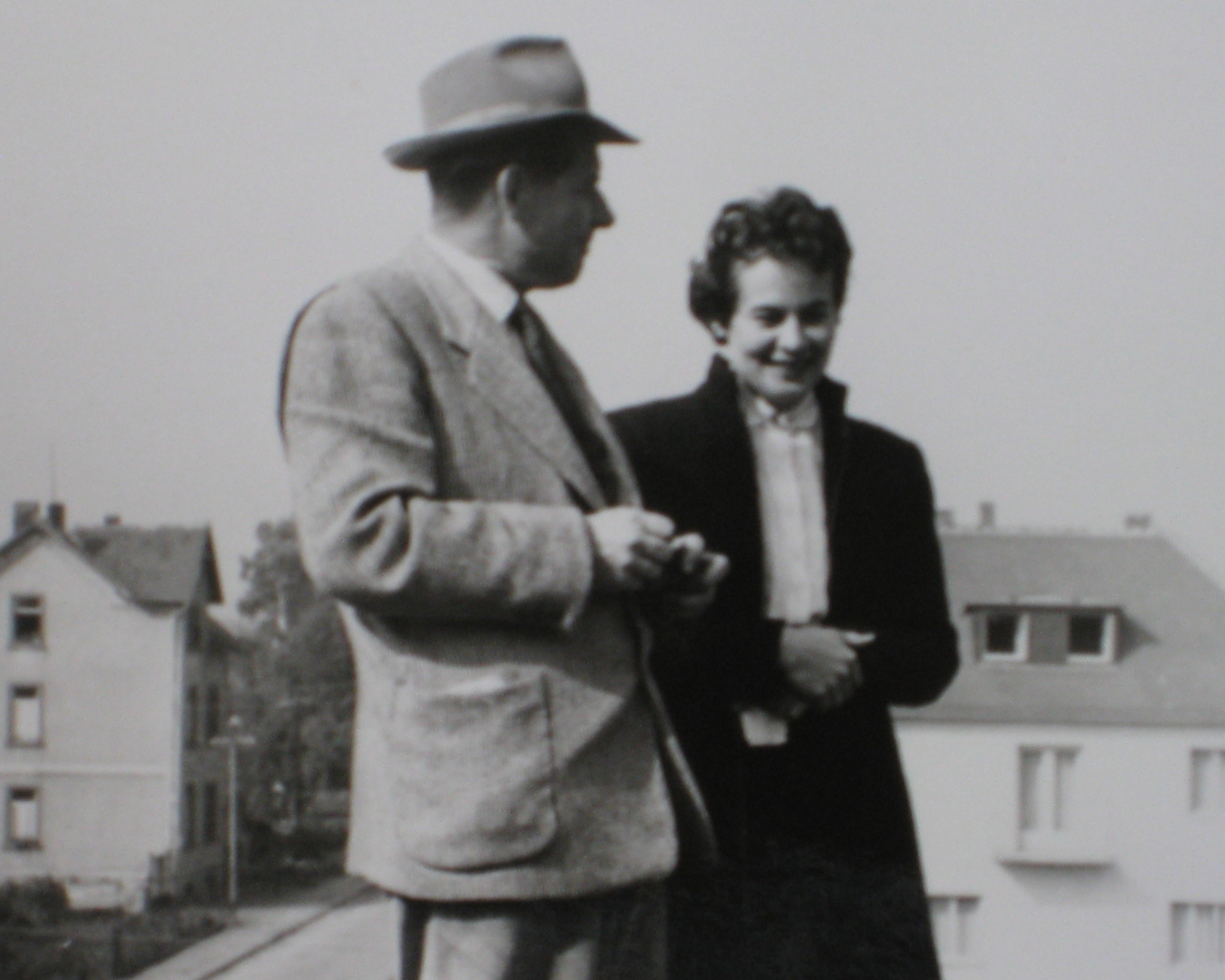
Together, Else Kröner and Dr. Hans Kröner transform Fresenius into a flourishing company
Else Fernau marries Dr. Hans Gottfried Noël Kröner in 1964, after which she goes by the name of Else Kröner. Though the pair already met in the early 1950s, Else Fernau initially only occasionally seeks legal advice from him. Over time, she begins to also ask him for his opinion on business matters. Dr. Hans Kröner officially joins the company in 1957. The company, which is still small at the time, grows rapidly in the 1960s. The number of employees rises sharply from around 40 to 400, and turnover increases thirteen-fold. Under the Kröner couple’s leadership, Fresenius develops numerous pioneering medical innovations such as infusion solutions in plastic bottles, which are still considered the industry standard today, and the first liquid nutrition for diabetics.
From medium-sized family business to globally active public limited company: Else Kröner as Chairwoman of the Supervisory Board
In 1982, Else Kröner converts the company into a public limited company and becomes Chairwoman of the Supervisory Board. Her husband Dr. Hans Kröner acts as Chairman of the Management Board. It soon becomes clear that the conversion, the associated increase in capital, and the subsequent structural changes were the right strategic decision: Fresenius’ revenue increases from 290 million euros in 1982 to 465 million euros in 1986.
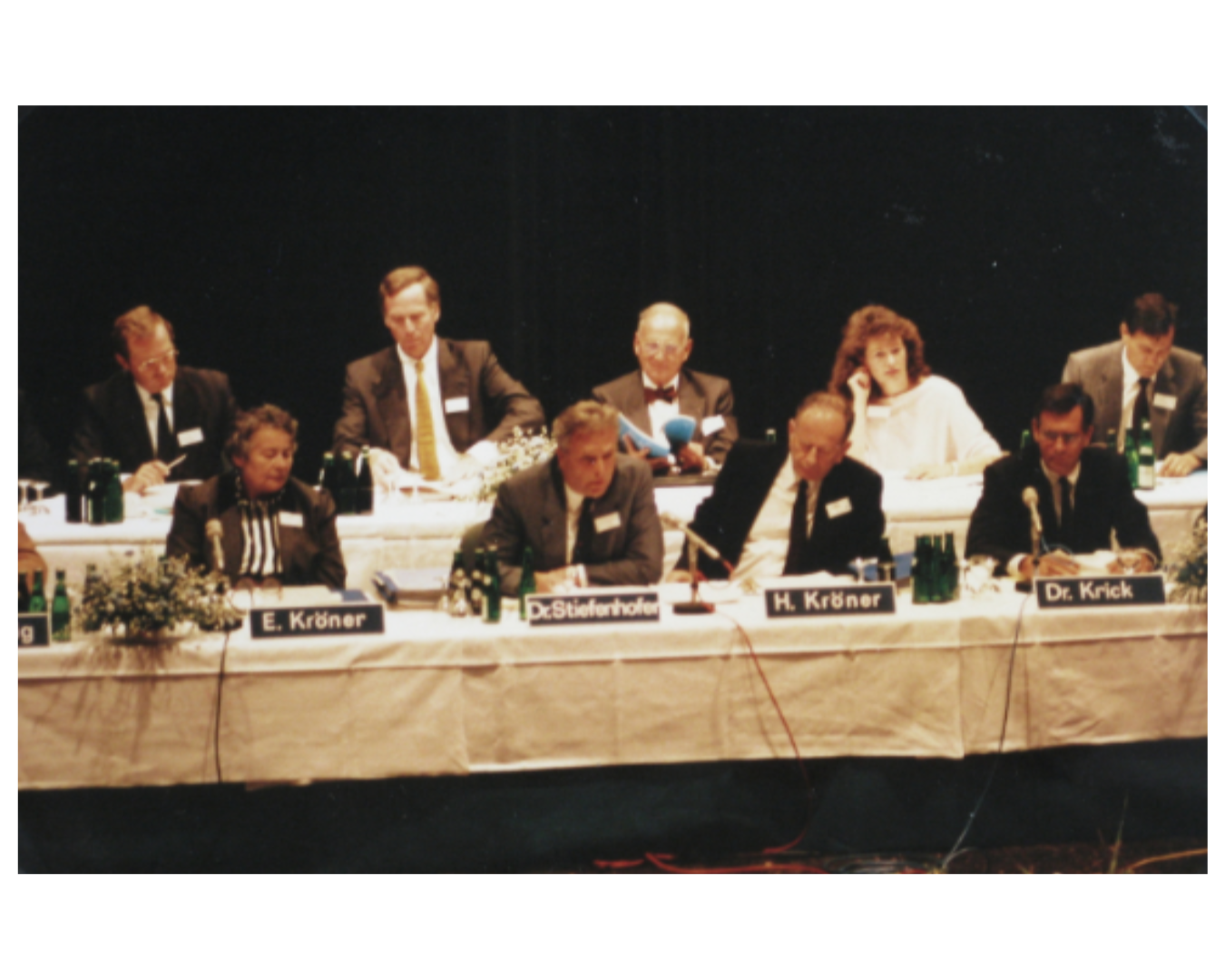
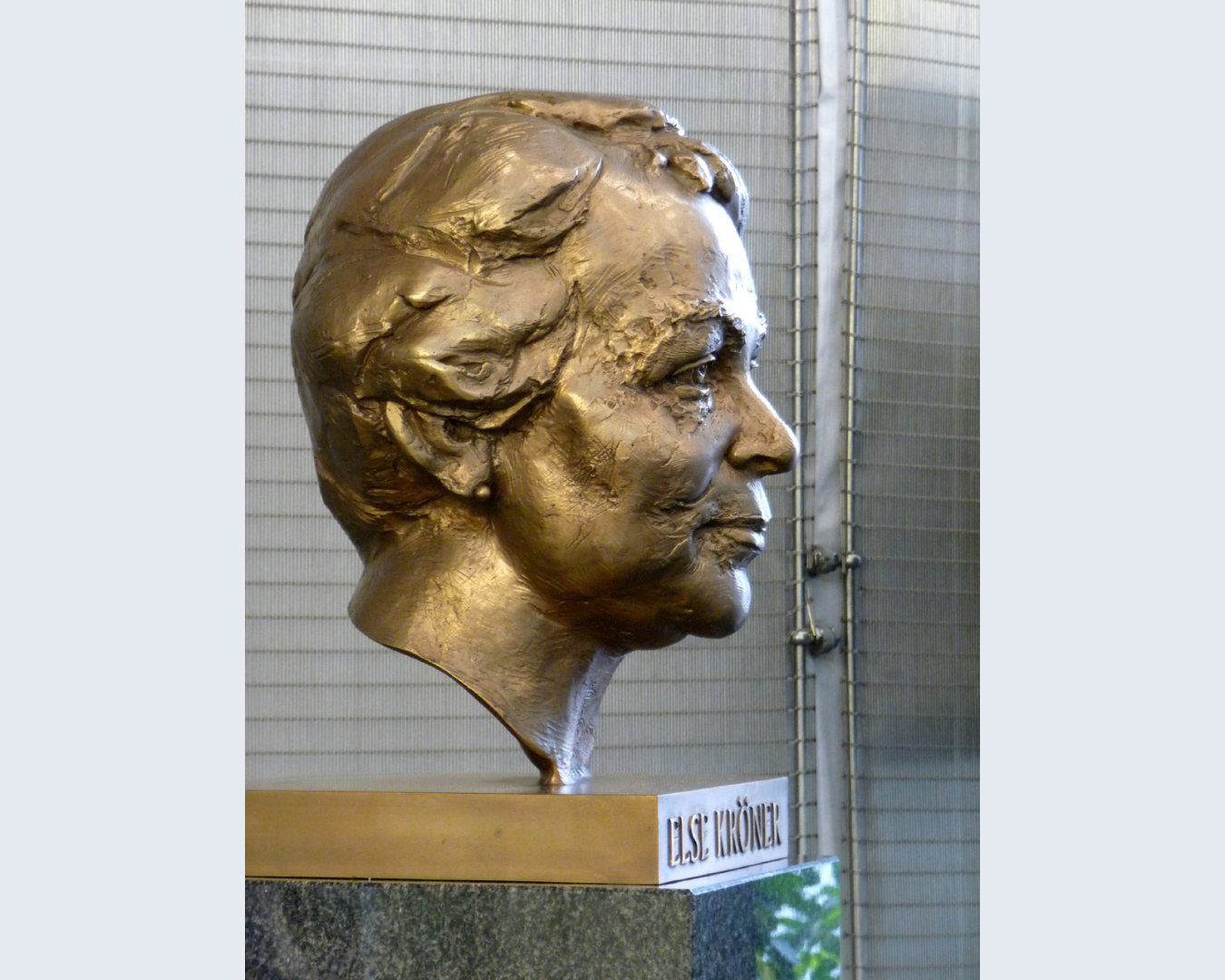
Values and legacy: “Who, if not us?”
Throughout her lifetime, Else Kröner remains immensely grateful to the Fresenius family for their support and the opportunity to continue the business of Dr. Fresenius. This sense of gratitude is her driving force and motivation to further advance the Fresenius legacy. In doing so, she always remains true to herself: Despite all her successes, she lives modestly and, even as Chairwoman of the Supervisory Board of the Fresenius Group, rarely seeks the spotlight, preferring instead to engage directly with the workforce. Hence she remains little known to the wider public to this day.
In 1983, Else Kröner founds the Else Kröner-Fresenius Foundation (EKFS), dedicated to advancing medical research and supporting humanitarian projects. When she dies unexpectedly on June 5, 1988, her entire estate passes to the foundation – as per her testament. Today, it is one of the largest foundations in Germany championing the field of medicine. Else Kröner’s legacy and values thus live on to this day.
Since its founding, the Else Kröner-Fresenius Foundation has contributed more than 700 million euros to around 2,800 medical, scientific, and humanitarian projects. They are almost exclusively funded from the income gained from the foundation’s shares in Fresenius of which it is the majority shareholder, holding more than 26 percent of the shares.
Fresenius currently employs around 176,000 people and generates annual revenue exceeding 21 billion euros.
The Fresenius Principles
Else Kröner’s values continue to shape the corporate culture at Fresenius to this day and are lived in the company daily through the Fresenius Principles. This is not least reflected in the internal Else Kröner Award, which Fresenius presented for the first time in 2025.
The Else Kröner Award recognizes outstanding, innovative, and exceptional initiatives of Fresenius teams that put the Fresenius Principles into practice and thus uphold Else Kröner’s legacy.
